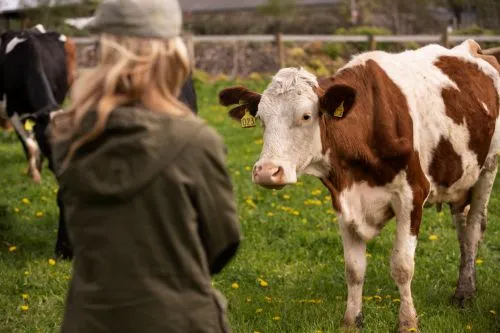1795

As reported by PoultryWorld, a joint study from the academic and governmental sectors in the USA will lead to the introduction of new commercial field corn hybrids with high levels of the amino acid methionine.
Supplement for free-range and organic poultry
The advancement is seen as welcome news for organic poultry producers whose birds require dietary formulations of the amino acid to ensure optimal growth, health, and both meat and egg production.
Methionine is one of the 9 essential amino acids and one of only 2 that contain sulfur. It helps initiate protein synthesis and is an important component of various tissues, including bones, muscles, ligaments, organs, skin, and feathers. Methionine also supports critical functions in the metabolic, digestive, and immune systems.
Growing poultry can naturally obtain methionine from consuming worms and other insects, but supplementing their diet with methionine in corn-based feeds is considered necessary to ensure that birds receive adequate amounts of the amino acid.
Currently, organic producers in the USA have had to seek federal regulatory exemptions to allow the use of 2 pounds of synthetic methionine per ton of feed for chickens and 3 pounds per ton for turkeys, ducks, and other types of poultry.
However, this project, among other research, aims to find natural alternatives whose cost and availability promise to replace the need for synthetic methionine.
Supplementing through corn
Corn is a major ingredient in current feed rations, but commercially grown hybrids contain very little methionine. However, scientists have found that there are sources of trait variability within germplasm collections that can be tapped into with the right tools.
Paul Scott, a plant geneticist with the Agricultural Research Service, and his colleagues sought to combine the use of two conventional plant breeding technologies - doubled haploid induction and recurrent selection - as transgenic crop varieties are not allowed in organic production.
Using these methods, and as reported in Crop Science, they developed 16 inbred maize lines whose levels of methionine in grains matched and, in one case, exceeded that of B101, a hybrid that proved to be a useful reference due to its naturally high methionine concentrations.
"B101 typically measures around 0.29 grams of methionine per 100 grams of grain, and the best lines of ours have around 0.37 grams per 100 grams," said Scott, from the ARS Corn Insects and Crop Genetics Research Unit in Ames, Iowa.
Additionally, some of the inbred lines also exhibited considerable genetic diversity in certain agronomic traits that were evaluated in field tests - plant height, flowering date, disease resistance, and orange kernels among them.
"It will be important to test these lines in hybrid combinations and in different environments to understand how stable the trait is and what their potential yield is. We'd also like to combine high methionine levels with other traits of value for organic poultry producers.
Orange kernels are one we're working on now, as well as the ability to exclude transgenic pollen. Ultimately, we'd like to develop corn that can provide a complete diet without supplements," he added.
(Note: The report was done in collaboration with representatives from Practical Farmers of Iowa, Iowa State University, and Khon Kaen University, Thailand. – Developing Inbred Maize Lines with Enhanced Methionine Concentration from a Large Methionine-Popcorn Population – Hintch – 2023 – Crop Science)





